In case you haven't heard about this yet, because you don't follow mediocre news, have a life or simply don't eat fruit because you're insane, it's been going on for a while.
Spiders that come with a discount when you buy grapes and bananas from the local supermarket. Uninvited guests, who are surely just as discontent with the encounter as you are.

Here Is Why You Should Be Thankful for Spiders in Your Fruit
An attempt at understanding how exotic spiders unwillingly got the lead role in a big picture conversation between environment and business.
Not this:
But these:
First in the US they found a black widow spider in a box of red grapes, more than on one occasion.
An even worse situation occurred in the UK, when a family had to evacuate from their home. They found a Brazilian wandering spider, packed away with a bunch of bananas, which alarmed the London pest control. The same Brazilian spider that is classified by Guiness Book of Records as the world's most venomous spider. Also, it's known for giving human males the most horribly long-lasting painful erection possible, which is not as fun as it sounds.
What does it mean when you find an extremely dangerous exotic spider with your fruit?
A) You have been condemned by the Universe and it's going to send unexpected life-threatening situations your way until you eventually go insane.
B) Farmers are mindfully letting the spiders live in their plantation because they serve a purpose.
C) You are destined to become the crime fighting superhero Spiderman. Also your uncle's going to die.
D) Spiders live to freak people out.
While the last one is quite probable and explains a lot, it's actually B), as you already figured out.
It's not a conspiracy, it's rather a big plot hole in a (not so) well thought-out plan.
To understand the situation, we must first revisit a few basic facts, that really tie the whole image together:
- Pesticides- substances used by agriculturists to kill and repel pests, to protect their productions.
Here it's important to keep in mind that the human kind has been going for the easy solutions since the dawn of civilisation (and it's not working out great). - In recent years there is a strong movement against pesticides being used in the food industry, and it's gained a lot of followers. The people, that this depends on, are not turning a blind eye either and it's given a rise to an alternative called Integrated Pest Management .
- Biological control is a form of IPM, or simply put- spiders eat pest insects.
With all this said, it must be clear to you already what is happening.
Farmers are putting big predator spiders into their fields to manage the population of pests, therefore increase food quality, in an environmentally-conscious way.
However, not everything follows the “What happens in Vegas, stays in Vegas” rule, and naturally spiders end up getting transported alongside the fruit into grocery shops and.. people's homes. That is the big hole in the system.
What's unfortunate is how much attention is given to the danger-factor, instead of to the story behind it.
The companies are doing their best to keep the spiders in the fields, of course, but it's hard to have it both ways. It might sound like a shrug-off, an “It is what it is” sort of reaction to people's complaints, but it's actually the better solution.
The truth is, people are getting revved up about it because a spider is something solid, something you can put your hand around (don't), and your brain automatically classifies as a danger to your well-being.
On the other hand, the infinite amount of damage done by the use of pesticides in your food is not something you consider in your everyday life, as it's not an immediate threat.
Even in a worse case scenario, these spiders can never be even half as much trouble compared to the impact these sprays have on the air, water, soil, plants, animals and humans (birth defects, genetic changes, tumours, nerve disorders..let's not go on).
On a final note, spiders are a good thing, but it's hard to see that when it's staring you in the face.
The best thing to do is to know how to act in an eventual encounter:
- Try your best not to get bitten (this is obvious).
- If you do get bitten, remain calm and seek immediate medical attention. Don't wait for the pain to start.
- If possible, try to collect the spider for positive identification by professionals.
Keep in mind that even in the case of the Brazilian wandering spider, despite its bad reputation, bites are rare (spiders usually go after things their own size and attack only when cornered), easily treated and non-lethal (because there is rarely enough venom in the bite to cause serious damage).
If there is one thought that we would like to leave you with, it's this old cliché:
The ends justify the means.
You might also like
My Successful Search for Edible LandscapingMany years ago, I went on a quest to find the best edible landscaping for Flo...
White Snakeroot - A Versatile and Little-Known WildflowerWhite snakeroot, Ageratina altissima, is a wildflower native to Eastern North...
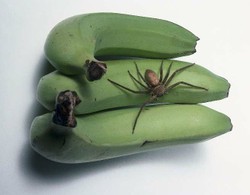

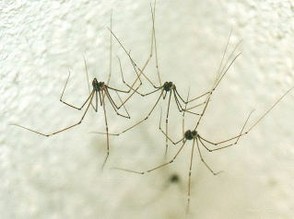
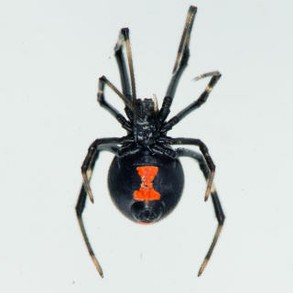
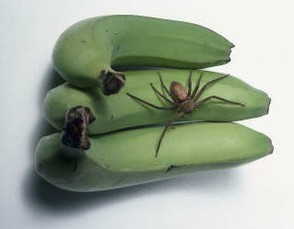
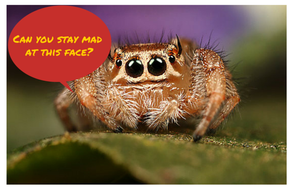

 Things Your Dog Would Want You to Keep in Mindon 02/16/2015
Things Your Dog Would Want You to Keep in Mindon 02/16/2015

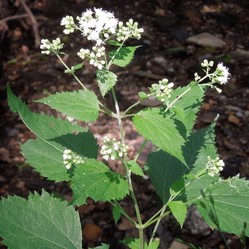
Comments